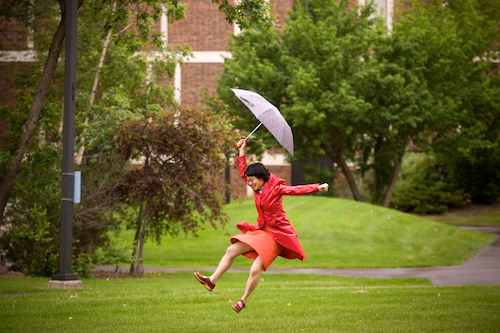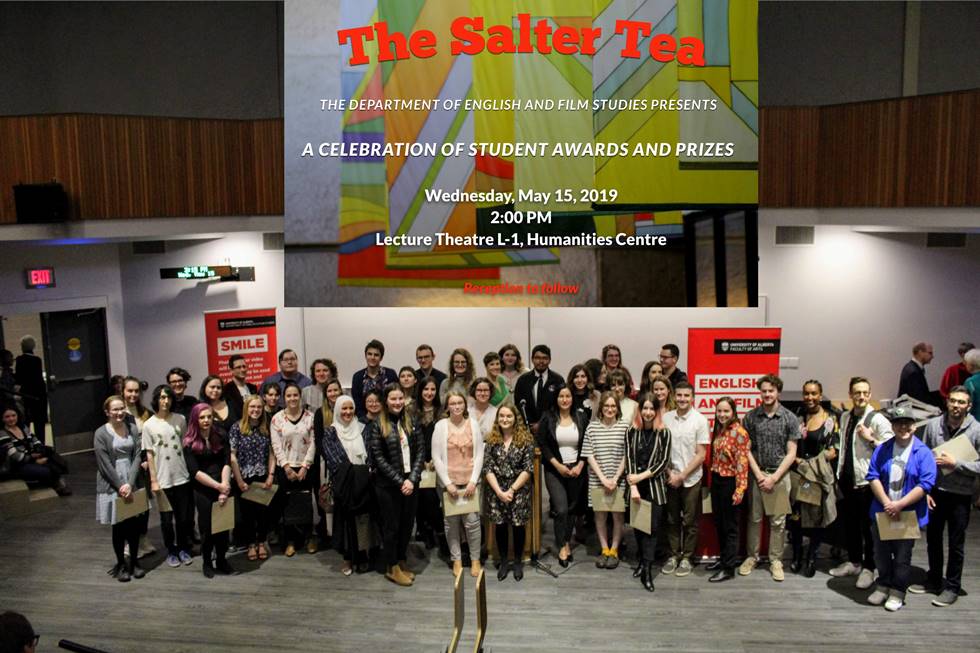Creative Writing Course Listings
 Please consult the University Calendar for a full listing of our Creative Writing courses , not all of which are offered in a given year. Our department also offers English and Film Studies courses.
Please consult the University Calendar for a full listing of our Creative Writing courses , not all of which are offered in a given year. Our department also offers English and Film Studies courses.
Fall 2024
WRITE 294 A1: Introduction to Poetry Workshop
E. Harris
“Poetry is concerned with using and abusing, with losing with wanting, with denying with avoiding with adoring with replacing the noun. It is doing that always doing that and doing nothing but that.” - Gertrude Stein, “Poetry and Grammar”
It has been said that: “Poetry does nothing.” In this course, students will delve widely and wildly into this (no)thing that poetry is: language. Do not be afraid of poetry! (Or, be very afraid, but not because you think you cannot read or write it – you can – rather, it deserves our respect because it has magic powers and can build and destroy worlds).
We will read widely, write often, and will explore principles and practices such as: reading with slow attentiveness, what is poetic form and why use it?, and how to discuss and “critique” poetry. (How can we support fellow writers to make their work even more engaging on its particular terms?)
We will critically explore diverse poetries ranging from: historic poetic forms and their political underpinnings, revisionist interventions within conventional forms, and experimental and not-yet-imagined forms of writing (and therein, representations of possibility, possible selves, and relations!)
Students will be invited to create and edit work that truly means something to you.
WRITE 294 X01: Introduction to Poetry Workshop
E. Harris
“Poetry is concerned with using and abusing, with losing with wanting, with denying with avoiding with adoring with replacing the noun. It is doing that always doing that and doing nothing but that.” - Gertrude Stein, “Poetry and Grammar”
It has been said that: “Poetry does nothing.” In this course, students will delve widely and wildly into this (no)thing that poetry is: language. Do not be afraid of poetry! (Or, be very afraid, but not because you think you cannot read or write it – you can – rather, it deserves our respect because it has magic powers and can build and destroy worlds).
We will read widely, write often, and will explore principles and practices such as: reading with slow attentiveness, what is poetic form and why use it?, and how to discuss and “critique” poetry. (How can we support fellow writers to make their work even more engaging on its particular terms?)
We will critically explore diverse poetries ranging from: historic poetic forms and their political underpinnings, revisionist interventions within conventional forms, and experimental and not-yet-imagined forms of writing (and therein, representations of possibility, possible selves, and relations!)
Students will be invited to create and edit work that truly means something to you.
WRITE 295 A1: Introduction to Writing Fiction
WRITE 295 X01: Introduction to Writing Fiction
WRITE 297 A1: Introduction to Writing NonFiction
WRITE 297 X01: Introduction to Writing NonFiction
WRITE 392 A1: Intermediate Poetry
WRITE 393 A1: Intermediate Fiction
WRITE 397 A1: Intermediate NonFiction
WRITE 399 A1: Projects in Genre
Experimental and Avant-Garde Poetics
J. Abel
In Rob Fitterman and Vanessa Place’s book Notes on Conceptualisms, their first and perhaps most important note is that “conceptual writing is allegorical writing.” Which is to say that conceptual writing is about writing things that can’t be articulated openly in this moment for one reason or another. Conceptualism, then must challenge, must confront, must say something that cannot be said. Using a range of experimental and avant-garde approaches, we will work individually and in groups to develop our own projects from idea to realization. Possible main course readings include NourbeSe Philip’s Zong!, Tom Committa’s O, Sonnet L’abbe’s Sonnet’s Shakespeare, Sheila Heti’s Alphabetical Diaries, Matthew Weigel’s Whitemud Walking, and Nisha Patel’s A Fate Worse Than Death.
WRITE 399 A2: Projects in Genre
Screenwriting (Combined with FS 399 A1 and DRAMA 307)
Winter 2025
WRITE 294 B1: Introduction to Poetry Workshop
E. Harris
“Poetry is concerned with using and abusing, with losing with wanting, with denying with avoiding with adoring with replacing the noun. It is doing that always doing that and doing nothing but that.” - Gertrude Stein, “Poetry and Grammar”
It has been said that: “Poetry does nothing.” In this course, students will delve widely and wildly into this (no)thing that poetry is: language. Do not be afraid of poetry! (Or, be very afraid, but not because you think you cannot read or write it – you can – rather, it deserves our respect because it has magic powers and can build and destroy worlds).
We will read widely, write often, and will explore principles and practices such as: reading with slow attentiveness, what is poetic form and why use it?, and how to discuss and “critique” poetry. (How can we support fellow writers to make their work even more engaging on its particular terms?)
We will critically explore diverse poetries ranging from: historic poetic forms and their political underpinnings, revisionist interventions within conventional forms, and experimental and not-yet-imagined forms of writing (and therein, representations of possibility, possible selves, and relations!)
Students will be invited to create and edit work that truly means something to you.
WRITE 295 B1: Introduction to Writing Fiction
WRITE 295 X50: Introduction to Writing Fiction
WRITE 297 B1 Introduction to Nonfiction Workshop
E. Harris
“I saw the author, her left cheek, her left shoulder agape, a photo of her washed in emergency, a quieting freight, a grandfather, a great-grandmother, one state of an illness, on the rim of a page without verbs, bullet-ridden and elegant, a boulder beside her, the things collected in her brain…” - Dionne Brand, The Blue Clerk
Humans are strangely and marvellously “narrative” creatures. Creative non-fiction (What is it?) is an expansive and porous genre; it can enable us to add a touch of “the personal” to investigative writing, while questioning what makes some voices (or ways of “telling” and “knowing”) more “official” or “legible” or “truthful” than others. Together we will explore possibilities in terms of representing “the experience of truth” (a term borrowed from nonfiction author Joan Didion).
We will explore a wide and wild range of creative non-fiction forms including: journalism, the personal essay/the “lyric” essay, autobiography and memoir, the braided/hermit crab essay, micro-fiction, speculative non-fiction, and the “critical fabulation” of Saidiya Hartman. We will also explore hybrid texts that purposefully blur/refuse/re-imagine the boundaries between and among these genres.
By exploring the work of diverse established writers and fellow students, we will work on refining skills for our lifetimes in writing: what is story, and how to tell an interesting story?, relationship of content + form, patient study of techniques and how these work as general (though never universal) strategies to elicit empathy and to ideally, communicate. All writers welcome! Many of the skills we develop will be equally applicable for writers of fiction, poetry, and academic scholarship.
Writers can bring in works of your choice for Workshop since it is designed to help you grow within your own interests and at your own pace.
WRITE 297 X50: Introduction to Writing NonFiction
WRITE 393 X50: Intermediate Fiction
WRITE 399 B2: Projects in Genre
Creative Writing Video Games
WRITE 494 B1: Advanced Creative Writing: Poetry
WRITE 495 B1: Advanced Creative Writing: Fiction
WRITE 498 B1: Advanced Creative Writing: NonFiction
Previous Offerings
2023-24 Fall and Winter Creative Writing Courses
Home | About Us | People | Research | Programs | Courses | Student Groups | Meet Our Alumni
